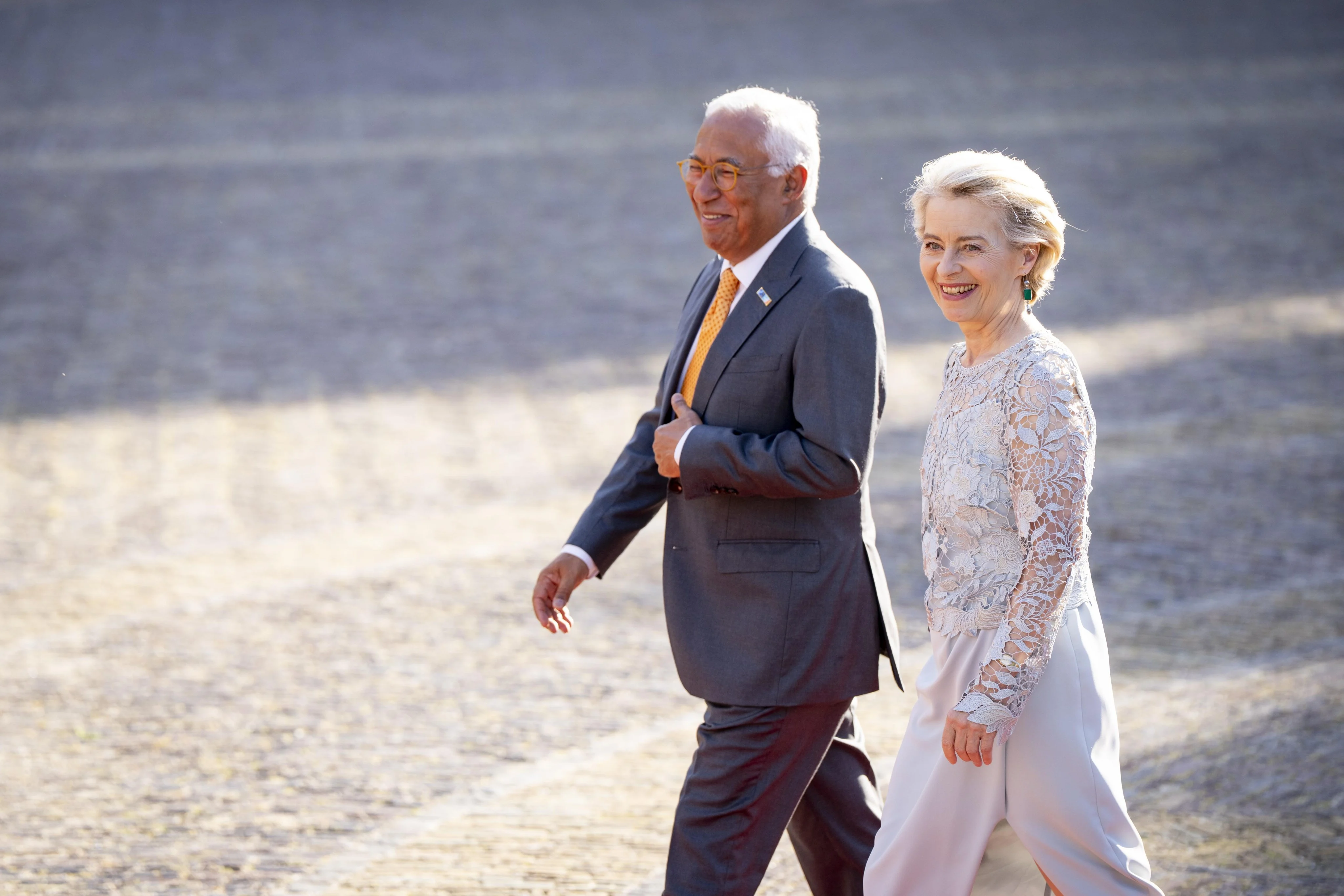European Union envoys to China say they have low expectations of any substantial achievement at the coming EU-China summit, citing complex trade challenges and the ongoing Ukraine war.
“I am sorry to be pessimistic – the next EU-China summit will be a wonderful summit with wonderful statements of principles, but I doubt that we will get some strategic incremental progress,” Italy’s ambassador to China, Massimo Ambrosetti, said at the World Peace Forum in Beijing on Friday.
European Commission President Ursula von der Leyen and European Council President Antonio Costa will travel to Beijing for the summit, which is expected to take place over two days from July 24, coinciding with the 50th anniversary of EU-Chinese relations.
“We have to realistically consider that the preparation of the summit was, of course, influenced by the negotiations on tariffs – between the EU and the US, between China and the US – it is a terribly complicated context,” Ambrosetti said. “So it’s not surprising that probably we will not have all the results that we hoped for.
“But it’s always good to have dialogue and institutional interactions, provided that we look at the future in a really strategic, longer-term perspective.”
The summit will take place two weeks after the July 9 deadline set by US President Donald Trump after he waged a global tariff war targeting all major trading partners. US officials now say the tariffs will take effect on August 1.
The EU member states – once deemed “nastier than China” by Trump – have been racing to secure a deal, but there have been no breakthroughs.
Following the London agreement last month, China has been carefully navigating trade ties with the US, but US tariffs such as those imposed on Vietnam last week suggest China is an indirect target.
Meanwhile, uncertainty clouds China-EU ties. On Sunday, in response to EU curbs to restrict Chinese medical devices from public procurement, Beijing announced that EU-based companies were excluded from certain Chinese government medical device contracts.
China also announced levies of up to 34.9 per cent on brandy producers from the EU that would be in effect for five years from Saturday. The move is seen as a response to the EU’s tariff on Chinese-made electric vehicles.
Also addressing the World Peace Forum on Thursday, Spanish ambassador to China Marta Betanzos said she did not know what the summit would bring.
“What I feel is that there are many, many issues coming up. I believe that we should need more time to reflect on that within the EU,” Betanzos said, describing it as a personal view of the imminent summit.
“That’s why I don’t know what is going to be the outcome of the summit, because it’s very close in time. I don’t know whether we have that time, but I can assure [you] that there is a real will based on necessity, and also conviction that we want to reach agreement.”
On Friday, Shi Mingde, China’s former ambassador to Germany, told the forum it was not likely that all issues would be resolved during the summit.
“Such a meeting wouldn’t take place if both sides did not have the willingness to develop this relationship or did not value it,” Shi said. “Of course, it’s impossible to resolve all issues in one meeting.
“But at the very least, we can establish the general direction and principles for the future development of China-Europe relations, which is very important.”
Vebjørn Dysvik, the envoy from Norway, a non-EU country, said there was hope “that something meaningful will come out of it”.
He said progress regarding the Ukraine war remained possible because both China and Europe agreed on the fundamental principles of respecting territorial integrity and national sovereignty.
“Here we agree, and China is in a position to put meaningful pressure on Russia, so there is a possibility. We know it’s difficult, but it’s not impossible,” Dysvik said.
The conflict that has been going on for more than three years is one of the biggest sources of friction between China and the EU, which has long accused Beijing of not being critical enough of Russia’s invasion and of maintaining closer diplomatic and economic ties with Moscow.
Beijing has denied any charges of favouring Russia and positioned itself as a peacemaker to both Russia and Ukraine.
Dysvik said climate-related collaboration could also be a positive outcome from the summit.
“The climate issue is a possibility to have meaningful cooperation, the one issue that is actually existential – that is the good news maybe we should bring out from this session,” Dysvik said.
